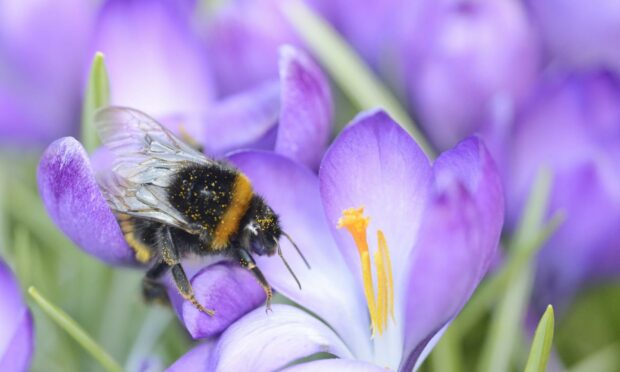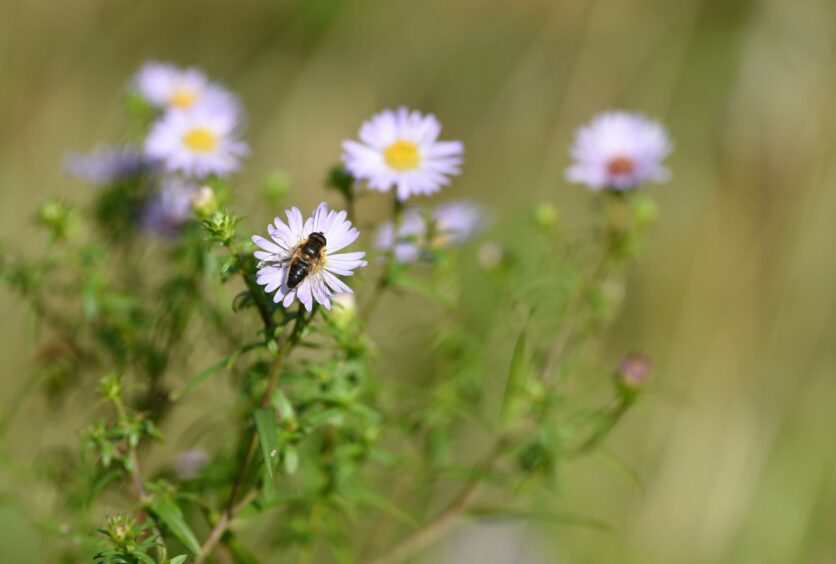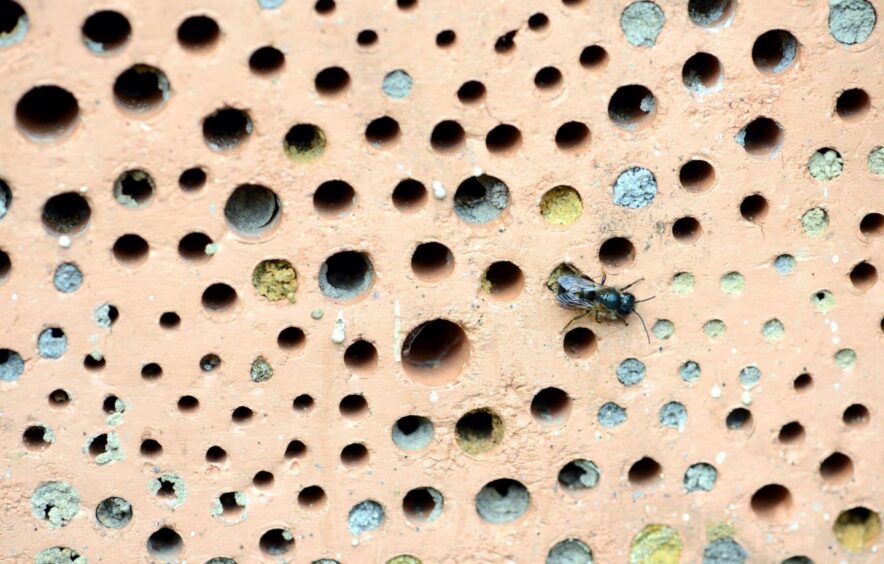Progress is being made to improve habitats in Scotland for pollinators such as bees and dragonflies.
A new report, published today by NatureScot, highlights the huge effort by a wide range of organisations and individuals to implement the Pollinator Strategy for Scotland.
Success stories in 2021 included the sowing of dozens of new wildflower meadows and improvements to road verge habitat across Scotland.
Projects also created wild spaces in school grounds, improved community greenspaces for pollinators and established pollinator hotspots.
Groups also planted countless pollinator-friendly spring bulbs, fruit trees and hedgerows.
Hundreds of volunteers also signed up to do their bit for pollinators in 2021.
They undertook bulb planting and meadow maintenance to insect identification and surveying.
In January, The Press and Journal reported on an initiative where a “bee brick”, a hole-ridden construction brick, had been invented to use in place of standard ones in new building projects.
Steps will help vital insects
Jim Jeffrey, NatureScot pollinator strategy manager, said: “This latest progress report comes on the back of Glasgow hosting COP26.
“There is no doubt now that the twin challenges of climate change and nature loss are in the forefront of everyone’s minds.
“Scotland is doing its utmost to address pollinator declines.
“We are fortunate that so many individuals and organisations recognise their plight. And are taking steps to help these vital insects.
“It’s particularly encouraging to see local authorities increasingly embracing opportunities to manage public spaces in a wildlife-friendly way. They are making space for nature by reducing mowing and planting for pollinators.”
NatureScot supported projects through grants from the Scottish Government’s biodiversity challenge fun.
He said: “We look forward to building on this work through the new £65million nature restoration fund.”
The fund will support projects that restore wildlife and habitats on land and sea.
Why are pollinators so important?
Pollinators are vital for biodiversity.
But populations face challenges due to changes in land use, habitat loss, diseases, pesticides and climate change.
The aim of the Pollinator Strategy for Scotland is to make Scotland more pollinator-friendly. This will help to halt and reverse the decline in native pollinator populations.
For tips for how to help pollinators at home see NatureScot’s Make Space For Nature campaign, and follow the Scottish Pollinators blog for updates on projects across Scotland.


